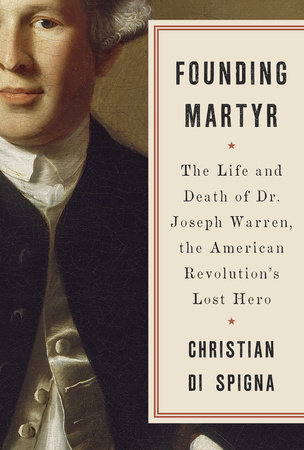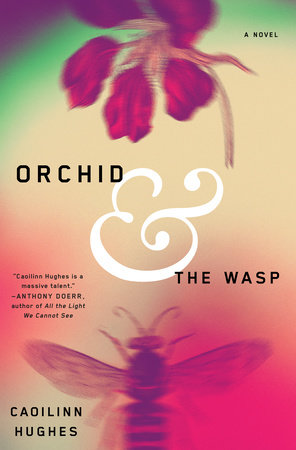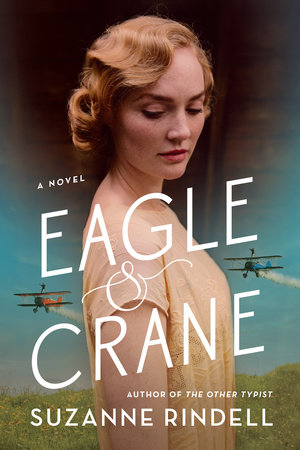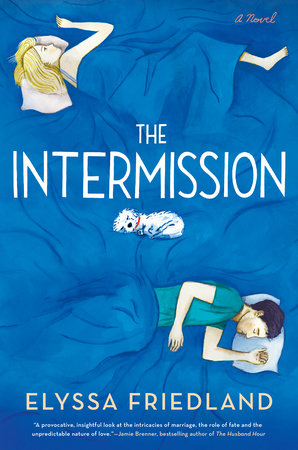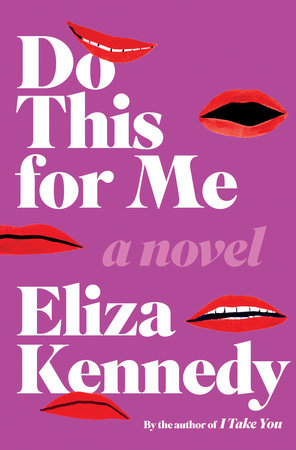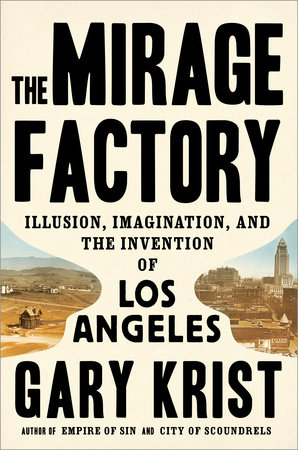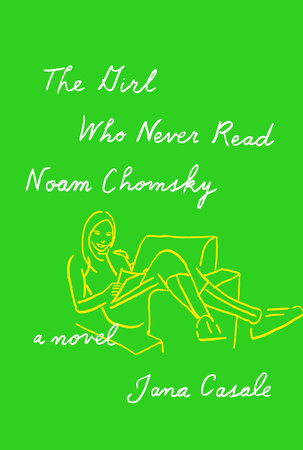The internment camps set up by the U.S. during the Second World War are not often the subject of historical fiction, and even more rare is a novel that takes its structure from the internment of German-Americans along with those of Japanese ancestry.
Right from the start, author Susan Meissner has a strong premise that captures the reader's interest. Who knew, you might say as you begin the story, who knew that Germanic blood could see a family shipped off to a remote location.
From that beginning comes a tale of friendship between two girls who find themselves torn from all they knew as children growing up in typical American surroundings. Elise and Mariko become firm friends in the short period of time that they are together, their relationship beset by bigotry and the inability of Mariko's father to accept the fact that his American-born daughter is too American for his taste.
There is plenty of cultural conflict to propel the narrative, aided by the book's structure. The tale begins with Elise in the early stages of Alzheimer's, determined to relocate her dear friend after an absence of almost sixty years. The past and present intertwine as the reader discovers the reason for the rupture, the disruption created by deportation and personal struggles.
The novel is a compelling read, the sort of book you can't put down readily.
Thanks ever so much to Penguin Random House for the opportunity to discover a forgotten chapter in history.
Sunday, December 30, 2018
Monday, September 24, 2018
One Day In December: A Book Review
What a pity that summer is over, but if you can get yourself to a beach somewhere, take ONE DAY IN DECEMBER with you.
Author Josie Silver spins a yarn out of entanglements in this book, with best friends Laurie and Sarah tangled up with Jack. From the love at first sight opening to the expected plot twist in which it's Sarah, and not smitten Laurie, who ends up with Jack, the narrative twists and turns through ten years of relationships building, growing, and coming to pieces.
Sure it may be quite predictable, but when you're looking to get away from the world's chaos, this is the break from reality that you need. Toss in a few stock characters, like the ex-girlfriend working in tandem with the shrewish mother-in-law to undermine a marriage, and all you need to add is a large rum-infused beverage to make it complete.
A bon-bon of a novel, it makes for a good weekend read even without the beach. But a warm fire or a cozy afghan would be almost essential.
Thanks to Penguin Random House for the review copy.
Author Josie Silver spins a yarn out of entanglements in this book, with best friends Laurie and Sarah tangled up with Jack. From the love at first sight opening to the expected plot twist in which it's Sarah, and not smitten Laurie, who ends up with Jack, the narrative twists and turns through ten years of relationships building, growing, and coming to pieces.
Sure it may be quite predictable, but when you're looking to get away from the world's chaos, this is the break from reality that you need. Toss in a few stock characters, like the ex-girlfriend working in tandem with the shrewish mother-in-law to undermine a marriage, and all you need to add is a large rum-infused beverage to make it complete.
A bon-bon of a novel, it makes for a good weekend read even without the beach. But a warm fire or a cozy afghan would be almost essential.
Thanks to Penguin Random House for the review copy.
Monday, July 30, 2018
Founding Martyr: A Book Review
History is written by the winners, it is said, but it's the winners who survive that live to tell their tale.
FOUNDING MARTYR is the biography of one who died early in a conflict, a work that brings to light the many contributions of Dr. Joseph Warren. By rights, he was one of America's founding fathers, and Christian Di Spigna does a fine job of illuminating the life and times of a man who has been largely forgotten.
Dr. Warren had a comfortable life and a booming medical practice, yet he did not hesitate to join the resistance to British interference in colonial self-government. To read about a man's dedication to what he thought was right and just makes for fascinating reading. Imagine yourself, with young children to provide for, but you are so incensed about unfair taxation that you organize resistance, even at risk of imprisonment or death.
The man was an intriguing character, and the narrative lays out a timeline of events that show how one thing led to another until the first shots of the American Revolutionary War were fired. Readers will come away with a strong sense of what made a gentleman in those trying times, and what was expected of those who dared to step forward and lead.
Well worth reading for history buffs or anyone enjoying the liberty bought at a high price.
As always, thanks to Penguin Random House for the review copy.
FOUNDING MARTYR is the biography of one who died early in a conflict, a work that brings to light the many contributions of Dr. Joseph Warren. By rights, he was one of America's founding fathers, and Christian Di Spigna does a fine job of illuminating the life and times of a man who has been largely forgotten.
Dr. Warren had a comfortable life and a booming medical practice, yet he did not hesitate to join the resistance to British interference in colonial self-government. To read about a man's dedication to what he thought was right and just makes for fascinating reading. Imagine yourself, with young children to provide for, but you are so incensed about unfair taxation that you organize resistance, even at risk of imprisonment or death.
The man was an intriguing character, and the narrative lays out a timeline of events that show how one thing led to another until the first shots of the American Revolutionary War were fired. Readers will come away with a strong sense of what made a gentleman in those trying times, and what was expected of those who dared to step forward and lead.
Well worth reading for history buffs or anyone enjoying the liberty bought at a high price.
As always, thanks to Penguin Random House for the review copy.
Friday, July 06, 2018
OK, Mr. Field: A Book Review
What is the novel about? It does not matter. This one is all voice: adrift, floating, moving in space with such smoothness that you don't realize the narrative is moving.
The protagonist is a concert pianist after a debiliating injury. The novel takes place in his scattered thoughts. The prose is remarkable.
Mr. Field has taken his settlement post-injury and moved to South Africa with his wife, who leaves him but it takes a while for you to realize she's gone. Yet you don't mind, the not-knowing, because the words are so lovely you aren't following the arc of the story but letting the words wash over you like the sea.
In time, he becomes obsessed with the widow of the architect who designed his house. They have conversations in his head, imaginary chats, delightful talks that feel real but we all know it's just his imagination. The obsession becomes stronger and drives him to act in bizarre ways that fit what has gone before.
This one is not for everyone, and if you're looking for a story to get lost in, this won't do. This is a piece of writing that you can fall into like a soft feather bed, more poetry than prose, a journey into a character's head when said character may not be altogether of sound mind.
Thanks to Penguin Random House for the review copy.
The protagonist is a concert pianist after a debiliating injury. The novel takes place in his scattered thoughts. The prose is remarkable.
Mr. Field has taken his settlement post-injury and moved to South Africa with his wife, who leaves him but it takes a while for you to realize she's gone. Yet you don't mind, the not-knowing, because the words are so lovely you aren't following the arc of the story but letting the words wash over you like the sea.
In time, he becomes obsessed with the widow of the architect who designed his house. They have conversations in his head, imaginary chats, delightful talks that feel real but we all know it's just his imagination. The obsession becomes stronger and drives him to act in bizarre ways that fit what has gone before.
This one is not for everyone, and if you're looking for a story to get lost in, this won't do. This is a piece of writing that you can fall into like a soft feather bed, more poetry than prose, a journey into a character's head when said character may not be altogether of sound mind.
Thanks to Penguin Random House for the review copy.
Tuesday, June 19, 2018
Orchid & The Wasp: A Book Review
Appropriate somehow to tackle a book with poetic prose as dense as ULYSSES with Bloomsday just behind us.
Caoilinn Hughes is a poet, and her prose has the lyrical quality of poetry. It makes for a difficult read, however, not unlike walking through a thick swamp of words that string together so prettily but confuse the reader when it comes to telling a story.
Gael Foess is a product of the Celtic Tiger and the crash that followed, wandering in search of the right hustle. Her family is not entirely supportive, and she turns down what help is offered by a father in the financial game. She protects, or tries to protect, her younger brother with mental health issues, using perception to finagle quite the payday out an art scheme she concocts for the money that's in it.
At least I think that's the gist of it. The narrative doesn't quite flow as smoothly as you might like for a relaxing read, and the prose itself is so intriguing that you read without gaining any context. Not a book for everyone, but for those who like the stylings of James Joyce, this is worth considering.
Thanks to Penguin Random House for the review copy.
Caoilinn Hughes is a poet, and her prose has the lyrical quality of poetry. It makes for a difficult read, however, not unlike walking through a thick swamp of words that string together so prettily but confuse the reader when it comes to telling a story.
Gael Foess is a product of the Celtic Tiger and the crash that followed, wandering in search of the right hustle. Her family is not entirely supportive, and she turns down what help is offered by a father in the financial game. She protects, or tries to protect, her younger brother with mental health issues, using perception to finagle quite the payday out an art scheme she concocts for the money that's in it.
At least I think that's the gist of it. The narrative doesn't quite flow as smoothly as you might like for a relaxing read, and the prose itself is so intriguing that you read without gaining any context. Not a book for everyone, but for those who like the stylings of James Joyce, this is worth considering.
Thanks to Penguin Random House for the review copy.
Monday, June 11, 2018
Eagle & Crane: A Book Review
I want to finish this, if only to discover what exactly is the mystery in this piece of historical fiction, but I can't seem to get through the pages.
EAGLE AND CRANE is built on the bigotry faced by the Japanese in the American West during the Second World War, using the old contrivance of friendship made and broken and strained between ethnic groups. The problem I've encountered is one of repetition. How many times must I be told by the author that Japanese-American Harry is wild about Harry (Houdini) and Louis comes from a long line of hardscrabble farmers?
I got the first few times, honestly. Quite clear.
The narrative winds through the Great Depression era of aviation barnstormers while intertwining a World War II tale of Japanese incarceration and the fate of Harry, possibly murdered by his fellow barnstormer Louis. There's the love interest to complete the triangle, but I've gotten too bogged down in extraneous backstory. Does a reader really need to know how Harry's family came to arrive in America? Or how Louis' kin chose the US of A? The enmity between the families could have been explained in far less than two-three chapters.
I'm bored. Time to read something else and maybe finish this some other time.
Thanks to Penguin Random House for the use of the review copy.
EAGLE AND CRANE is built on the bigotry faced by the Japanese in the American West during the Second World War, using the old contrivance of friendship made and broken and strained between ethnic groups. The problem I've encountered is one of repetition. How many times must I be told by the author that Japanese-American Harry is wild about Harry (Houdini) and Louis comes from a long line of hardscrabble farmers?
I got the first few times, honestly. Quite clear.
The narrative winds through the Great Depression era of aviation barnstormers while intertwining a World War II tale of Japanese incarceration and the fate of Harry, possibly murdered by his fellow barnstormer Louis. There's the love interest to complete the triangle, but I've gotten too bogged down in extraneous backstory. Does a reader really need to know how Harry's family came to arrive in America? Or how Louis' kin chose the US of A? The enmity between the families could have been explained in far less than two-three chapters.
I'm bored. Time to read something else and maybe finish this some other time.
Thanks to Penguin Random House for the use of the review copy.
Wednesday, May 30, 2018
The Intermission: A Book Review During An Intermission
Note to Penguin Random House, supplier of the review copy provided:
All this talk of diversity in books, yet where is the diversity in setting? Must every work of women's fiction be set in New York City? Can we have stories about people who aren't jaded, entitled and whingeing over trivialities?
I slogged through one-third of THE INTERMISSION before I realized I was wasting valuable reading time on something not worth the investment. Again, yes again, the acquisitions editors at Penguin Random House have found another manuscript that speaks to them, young professionals in New York City with psychoanalysts on retainer, spending every waking minute analyzing the minutia of life and believing that these thoughts are deep, relevant, and of vital interest to the rest of the world.
Our characters are a pair of well-heeled New Yorkers, five years into a marriage, and wouldn't you know it but the wife is up to the usual examination of her existence because she has little else to do. No one in these novels ever considers volunteering at a soup kitchen, to be surrounded by characters with far greater problems. That's not how modern publishing works.
Poor Cass is so burdened by the weight of entitlement that she must take a break from marriage and so she proposes an intermission (not a trial separation. That's so last century). And where does she jet off to, to find meaning in her empty life?
She doesn't land on Mother Teresa's doorstep. No indeed. Our Cass goes all the way across the USA to Los Angeles, that other bastion of entitlement.
Where she finds an affordable flat in West Hollywood. Is this historical fiction, you might ask, or do the entitled think $2000 per month for a dump is affordable?
But what of the novel? Does Cass find herself and heal her marriage?
I don't care. I have given up on her tale of self-centered woe. I cannot finish this novel full of emptiness.
Author Elyssa Friedland can string words together to make sentences, but that's not enough to compose an entire novel that is enjoyable or enlightening or entertaining.
Diversity in publishing, please. There is an entire world outside of Manhattan, beyond Park Slope, and surely there is the next Ivan Doig seeking publication.
All this talk of diversity in books, yet where is the diversity in setting? Must every work of women's fiction be set in New York City? Can we have stories about people who aren't jaded, entitled and whingeing over trivialities?
I slogged through one-third of THE INTERMISSION before I realized I was wasting valuable reading time on something not worth the investment. Again, yes again, the acquisitions editors at Penguin Random House have found another manuscript that speaks to them, young professionals in New York City with psychoanalysts on retainer, spending every waking minute analyzing the minutia of life and believing that these thoughts are deep, relevant, and of vital interest to the rest of the world.
Our characters are a pair of well-heeled New Yorkers, five years into a marriage, and wouldn't you know it but the wife is up to the usual examination of her existence because she has little else to do. No one in these novels ever considers volunteering at a soup kitchen, to be surrounded by characters with far greater problems. That's not how modern publishing works.
Poor Cass is so burdened by the weight of entitlement that she must take a break from marriage and so she proposes an intermission (not a trial separation. That's so last century). And where does she jet off to, to find meaning in her empty life?
She doesn't land on Mother Teresa's doorstep. No indeed. Our Cass goes all the way across the USA to Los Angeles, that other bastion of entitlement.
Where she finds an affordable flat in West Hollywood. Is this historical fiction, you might ask, or do the entitled think $2000 per month for a dump is affordable?
But what of the novel? Does Cass find herself and heal her marriage?
I don't care. I have given up on her tale of self-centered woe. I cannot finish this novel full of emptiness.
Author Elyssa Friedland can string words together to make sentences, but that's not enough to compose an entire novel that is enjoyable or enlightening or entertaining.
Diversity in publishing, please. There is an entire world outside of Manhattan, beyond Park Slope, and surely there is the next Ivan Doig seeking publication.
Tuesday, May 01, 2018
Do This For Me: A Book Review
Sometimes you need to indulge in a bon-bon of a book, and DO THIS FOR ME will satisfy that craving for something sweet.
The story of Raney Moore, prestigious attorney, is filled with clever wit, making an unappealing sort of woman quite sympathetic to the reader. While you might fear that a character who tends to crush underlings beneath her powerful foot would be unlikeable, the author has written Raney with enough humility to soften the hard edges and have you root for her as she discovers that her neatly compartmentalized world has crumbled.
Like any good researcher, Raney sets off to uncover the source of the flaw that led to infidelity, and the quest makes for some very funny reading. She undergoes a satisfying transformation as she learns about life and herself, with the author engaging in standard women's fiction arcs, but who cares as long as you the reader have some fun on a weekend with some light reading?
This is definitely a book for adults, however, with lengthy passages about sex as Raney explores different sex partners in a most random, tomcat sort of fashion. Unleash the libido!
This is a carefree bit of prose, something to pick up for a beach read or holiday.
Thanks to Penguin Random House for the review copy.
Monday, April 23, 2018
The Mirage Factory: A Book Review
Los Angeles is an interesting bit of sprawl, and to read THE MIRAGE FACTORY is to come to an understanding on how that urban oasis came to be, in a most unlikely of spots.
Gary Krist does a fine job of presenting three separate narratives that describe well the events that shaped LA and guided the city towards significance. He begins with the story of Mr. Mulholland, the man who stole water from other areas so that LA could grow. Intertwined with the water saga is the brief history of D.W. Griffith, the star film director who was prominent in the film business that would define the area. Finally, the author introduces the reader to Aimee Semple McPherson, a character in her own right, and the sort of resident you'd expect to find in a city that has its own culture.
While the three key players were familiar to me, there was a great deal that was not, and I found this book to be a page-turner as Mulholland pushed ahead with his scheme to irrigate LA while D.W. Griffith cranked out film after film and became a force in the movie business. And how did the evangelist get her start before drifting into scandal? It's in THE MIRAGE FACTORY.
I thoroughly enjoyed this treatment of LA in the early decades of the Twentieth Century, when the city grew so fast that the water supply system couldn't keep up. The book is packed with fascinating details and anecdotes, and would be better than any guide book if you're planning a trip out west. Or have ever enjoyed a film or wondered about those mega-churches that draw enormous crowds.
Thanks to Penguin Random House for the advanced copy. This was one of the best I've seen.
Gary Krist does a fine job of presenting three separate narratives that describe well the events that shaped LA and guided the city towards significance. He begins with the story of Mr. Mulholland, the man who stole water from other areas so that LA could grow. Intertwined with the water saga is the brief history of D.W. Griffith, the star film director who was prominent in the film business that would define the area. Finally, the author introduces the reader to Aimee Semple McPherson, a character in her own right, and the sort of resident you'd expect to find in a city that has its own culture.
While the three key players were familiar to me, there was a great deal that was not, and I found this book to be a page-turner as Mulholland pushed ahead with his scheme to irrigate LA while D.W. Griffith cranked out film after film and became a force in the movie business. And how did the evangelist get her start before drifting into scandal? It's in THE MIRAGE FACTORY.
I thoroughly enjoyed this treatment of LA in the early decades of the Twentieth Century, when the city grew so fast that the water supply system couldn't keep up. The book is packed with fascinating details and anecdotes, and would be better than any guide book if you're planning a trip out west. Or have ever enjoyed a film or wondered about those mega-churches that draw enormous crowds.
Thanks to Penguin Random House for the advanced copy. This was one of the best I've seen.
Monday, April 16, 2018
House of Nutter: A Book Review
Fashion underwent a tremendous revolution in the 1960s and 1970s, and Tommy Nutter was one of that revolution's leaders.
This biography of the noted fashion designer was fascinating. A man from humble beginnings set the men's fashion world on its head with his bold designs and use of color at a time when the world was still very much a grey place. Add to that kind of bold thinking the fact that Mr. Nutter was gay when the gay world was still in the closet, and you have the makings of an intriguing read.
The writer brings us into the world of Savile Row tailoring and gay nightlife in swinging London, and he does it well. He places us in the disco era, among the stars in Tommy Nutter bespoke suits, all glitz and glamour and tragedy when the AIDS virus began to spread.
Not to be forgotten is Tommy's brother David, the noted photographer, who also features prominently in the tale. He was a groundbreaking artist in his own right, and the story of two gay brothers in creative fields, blazing new trails, makes for a very enjoyable read.
The younger generation, those who did not grow up in the bland 1950s and think the 1960s was all about protesting will find this treatment of those days interesting. There was a revolution, pushed on by the post-war babies, and the protests took on many forms, including wide lapels and colors beyond the grey/navy pallet.
Thanks to Penguin Random House for access to a book that I highly recommend.
This biography of the noted fashion designer was fascinating. A man from humble beginnings set the men's fashion world on its head with his bold designs and use of color at a time when the world was still very much a grey place. Add to that kind of bold thinking the fact that Mr. Nutter was gay when the gay world was still in the closet, and you have the makings of an intriguing read.
The writer brings us into the world of Savile Row tailoring and gay nightlife in swinging London, and he does it well. He places us in the disco era, among the stars in Tommy Nutter bespoke suits, all glitz and glamour and tragedy when the AIDS virus began to spread.
Not to be forgotten is Tommy's brother David, the noted photographer, who also features prominently in the tale. He was a groundbreaking artist in his own right, and the story of two gay brothers in creative fields, blazing new trails, makes for a very enjoyable read.
The younger generation, those who did not grow up in the bland 1950s and think the 1960s was all about protesting will find this treatment of those days interesting. There was a revolution, pushed on by the post-war babies, and the protests took on many forms, including wide lapels and colors beyond the grey/navy pallet.
Thanks to Penguin Random House for access to a book that I highly recommend.
Wednesday, April 11, 2018
THE ONLY STORY: A Book Review
At it's heart, the novel is an examination of love, and how many love stories one might have. Doesn't sound like much? Ah, but Julian Barnes has a way of sneaking up on you, drawing you in to a novel that soon has your full attention.
THE ONLY STORY is a coming of age, in a way, as protagonist Paul and all his late-teen lust falls in love with a neighbor much older than himself. He is the narrator, telling the story as he looks back at a romance that shaped his adult life, for better or worse.
It's difficult to write a review without spoilers because so much pops up, events sprinkled throughout the narrative that prompt page turning, but what becomes of Paul is told so well that I can only recommend the book.
The prose is the sort that feels effortless, as if the author just sat down and let the words flow. A few spots got somewhat draggy, as can happen in a book filled with internal dialogue and pondering, but it passes. And it's a fairly short novel, perfect for a quiet weekend's read when you want to delve into a study of a fascinating character.
THE ONLY STORY is a coming of age, in a way, as protagonist Paul and all his late-teen lust falls in love with a neighbor much older than himself. He is the narrator, telling the story as he looks back at a romance that shaped his adult life, for better or worse.
It's difficult to write a review without spoilers because so much pops up, events sprinkled throughout the narrative that prompt page turning, but what becomes of Paul is told so well that I can only recommend the book.
The prose is the sort that feels effortless, as if the author just sat down and let the words flow. A few spots got somewhat draggy, as can happen in a book filled with internal dialogue and pondering, but it passes. And it's a fairly short novel, perfect for a quiet weekend's read when you want to delve into a study of a fascinating character.
Sunday, March 25, 2018
The Girl Who Never Read Noam Chomsky: A Book Review
They fill the offices in New York city publishing houses, twenty-somethings who majored in creative writing. They fill the acquisitions department with treacle that resonates with them, so sure that the rest of the reading world will also vibrate to the buzz of a twenty-something creative writing student facing so many taxing problems. Like if she's fat. If her submission to the prestigious literary rag will be accepted. If she should buy a bagel or a jelly donut.
We've been here before, haven't we, with THE LIGHT WE LOST.
And like that earlier incarnation, I have given up, but well before page 145.
"What do we have but yet another young New Yorker examining the lint in her navel and imagining that it is fascinating for us all" I said back then, and it's still true in THE GIRL WHO NEVER READ NOAM CHOMSKY. The problems are the same small, petty, insignificant dross. This novel is the bleating of an elitist who has not experienced life. It makes for a boring tale.
Again, the prose is lovely. And again, it's the fecking story. There isn't much there.
To repeat: "Sure there are those who enjoy a soap opera, or those who are twenty-something elitists in New York who believe their problems have deep relevance to the world. I am not one of them. This is not a book for me. Sorry, Penguin Random House. You gave me the book for a review, but I can't finish it. I wouldn't inflict this on anyone I know because they like good books with substance. If you're wondering why book sales are down, well, you can start here."
It still holds true for this particular presentation of elitist problems.
We've been here before, haven't we, with THE LIGHT WE LOST.
And like that earlier incarnation, I have given up, but well before page 145.
"What do we have but yet another young New Yorker examining the lint in her navel and imagining that it is fascinating for us all" I said back then, and it's still true in THE GIRL WHO NEVER READ NOAM CHOMSKY. The problems are the same small, petty, insignificant dross. This novel is the bleating of an elitist who has not experienced life. It makes for a boring tale.
Again, the prose is lovely. And again, it's the fecking story. There isn't much there.
To repeat: "Sure there are those who enjoy a soap opera, or those who are twenty-something elitists in New York who believe their problems have deep relevance to the world. I am not one of them. This is not a book for me. Sorry, Penguin Random House. You gave me the book for a review, but I can't finish it. I wouldn't inflict this on anyone I know because they like good books with substance. If you're wondering why book sales are down, well, you can start here."
It still holds true for this particular presentation of elitist problems.
Friday, March 09, 2018
The Italian Teacher: A Book Review
He has a way with words, author Tom Rachman, a lyrical quality that entices a reader to suspend disbelief and enter the world of Pinch Bavinsky, the solitary hero of THE ITALIAN TEACHER.
The protagonist is the son of a Jewish bundle of neuroses who hates her mother (a requisite character trait these days, it seems) and a narcissistic artist whose time comes and goes over the course of the novel. Religion does indeed figure in this novel, however, but it is Pinch who is the true believer, worshipping his ne'er-do-well father. It is a faith that forms the son and guides his choices, for good or ill.
Pinch grows up in the shadow of the famous man who is too busy bedding women to take much heed of his son, although they do form a rather tight bond, the origins not discovered until later. Such is the stuff that drives a narrative that is quite compelling, as the reader goes along for a rather sad ride through the life of Pinch, with all its misery and inability to form relationships.
His is the solitary life, his focus centered on getting his father's attention while trying to avoid his somewhat unstable mother's smothering. A young man full of enthusiasm for art ends up as a language teacher, his life's course plotted by a father whose motivations are unclear until you reach the end - but it's that kind of tension that keeps you turning the page.
The prose is so lovely that you'll despair of ever being able to write nearly as well, and the story at times so far-fetched that you almost can't believe the path it has taken, but it's a delight all the same. The conclusion is a tribute to true love and the tight bonds of friendship, the sort of ending that you'd hoped for as you discover more about Pinch, his father, and his mother.
This was one of those rare books that I stayed up well past bedtime to finish, a pleasure to read.
The protagonist is the son of a Jewish bundle of neuroses who hates her mother (a requisite character trait these days, it seems) and a narcissistic artist whose time comes and goes over the course of the novel. Religion does indeed figure in this novel, however, but it is Pinch who is the true believer, worshipping his ne'er-do-well father. It is a faith that forms the son and guides his choices, for good or ill.
Pinch grows up in the shadow of the famous man who is too busy bedding women to take much heed of his son, although they do form a rather tight bond, the origins not discovered until later. Such is the stuff that drives a narrative that is quite compelling, as the reader goes along for a rather sad ride through the life of Pinch, with all its misery and inability to form relationships.
His is the solitary life, his focus centered on getting his father's attention while trying to avoid his somewhat unstable mother's smothering. A young man full of enthusiasm for art ends up as a language teacher, his life's course plotted by a father whose motivations are unclear until you reach the end - but it's that kind of tension that keeps you turning the page.
The prose is so lovely that you'll despair of ever being able to write nearly as well, and the story at times so far-fetched that you almost can't believe the path it has taken, but it's a delight all the same. The conclusion is a tribute to true love and the tight bonds of friendship, the sort of ending that you'd hoped for as you discover more about Pinch, his father, and his mother.
This was one of those rare books that I stayed up well past bedtime to finish, a pleasure to read.
Subscribe to:
Comments (Atom)


